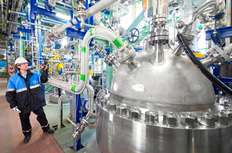
New Production Plant
Covestro has opened a new production plant in Dormagen, Germany, to produce plastics using carbon dioxide (CO2) instead of crude oil. The plant manufactures an innovative foam component with 20% CO2, reducing the reliance on traditional oil-based raw materials and contributing to sustainability.
Investment and Capacity
The company invested EUR 15 million in the new facility, which has an annual production capacity of 5,000 metric tons. The CO2 used in the process is a waste product from a neighboring chemical company, making the process more environmentally friendly.
Scientific Collaboration
Covestro collaborated with experts from the CAT Catalytic Center in Aachen and RWTH Aachen University to develop the right catalyst for the chemical reaction with CO2. This breakthrough combines application-centric basic research with industrial practices.
Applications and Quality
The new CO2-based polyol is initially designed for flexible polyurethane foam used in mattresses and upholstered furniture. The foam meets the same high-quality standards as conventional materials made from petrochemical raw materials.
Environmental Impact
By using CO2 and reducing crude oil consumption, the new method is more environmentally friendly. The process saves energy that would otherwise be used to process crude oil, thanks to the catalyst and the energy contained in the remaining petrochemical raw materials.
Future Prospects
If the new CO2-based products are well-received, Covestro plans to expand production significantly. The company is also exploring the use of CO2 in manufacturing other types of plastics, with the long-term vision of largely eliminating crude oil from plastics production.

